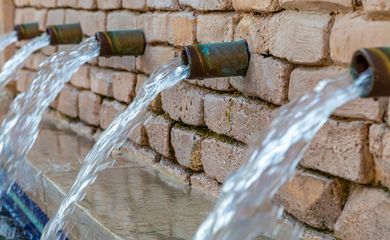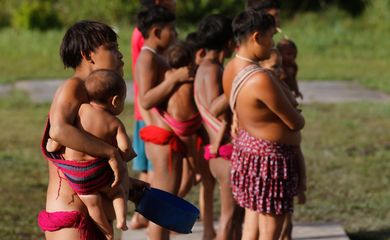Over 12 million kids in Brazil have no sewage treatment

The United Nations Children’s Fund (UNICEF) warns that 12.2 million children and adolescents in Brazil live with no adequate access to sewage treatment and 2.1 million have no adequate access to water in the country.

This reality, UNICEF stated, exposes them to severe risks, compromising their health and affecting their physical, educational, and social development. To raise awareness of the issue, the organization is launching a campaign to raise funds for projects aimed at providing girls and boys with access to water, sanitation, and hygiene for Children’s Day, celebrated in Brazil on October 12.
The information on water and sewage was obtained from the 2022 demographic census by statistics bureau IBGE. These shortcomings, concentrated mainly in the most vulnerable areas, are said to sharpen social inequality, aggravate the vulnerability facing these children and adolescents, and can have a long-term impact on their health and worsen their school performance.
According to the data, such challenges are most severe in Brazil’s semi-arid Northeast and the Amazon region. In terms of color and race, almost 70 percent of children and adolescents with inadequate access to sanitation are black or mixed-race.
In addition, 25 percent of indigenous children and adolescents do not have adequate access to water and 48 percent live without sanitation. This figure is in line with data released by the IBGE last Friday (Oct. 4) showing that over 1 million indigenous people, including children and adults, live in precarious sanitation conditions.
This precarious or non-existent access to both water and sanitation has an impact not only on the present, but also on the future of children and adolescents, UNICEF’s marketing coordinator Lidia Carvalho noted.
“Safe access to water and sanitation for all children and adolescents is a human right, recognized by the United Nations since 2010. Providing and strengthening public policies aimed at safe access to basic sanitation is a fundamental factor in advancing towards the sustainable development goals, leaving no one behind,” Rodrigo Resende, UNICEF’s Water, Sanitation, and Hygiene Officer in Brazil argued.
Around 600 million children in the world will live in areas with extreme water scarcity by 2040, as per UNICEF estimates. The study warns of the impacts on children’s health and survival and reveals that climate change, increased demand for water, and poor management of water resources are the main drivers behind this crisis.
Campaign
To raise awareness about the challenges faced daily by girls and boys living in regions where access to drinking water and sanitation is limited or non-existent, UNICEF has teamed up with one of Brazilian TV’s most iconic characters, Ratinho, the mouse from the show Castelo Rá-Tim-Bum.
The initiative, created by VML Brasil, recreates one of the show’s most memorable scenes, in which the character takes a shower while singing his famous song. This time, however, when he turns on the shower, he is faced with a harsh reality—the lack of water. The audience will be invited to make donations to UNICEF’s water, sanitation, and hygiene efforts in Brazil, directed at schools and vulnerable communities. With each donation, participants will contribute to reaching the target that will unlock a new clip featuring the little mouse.







